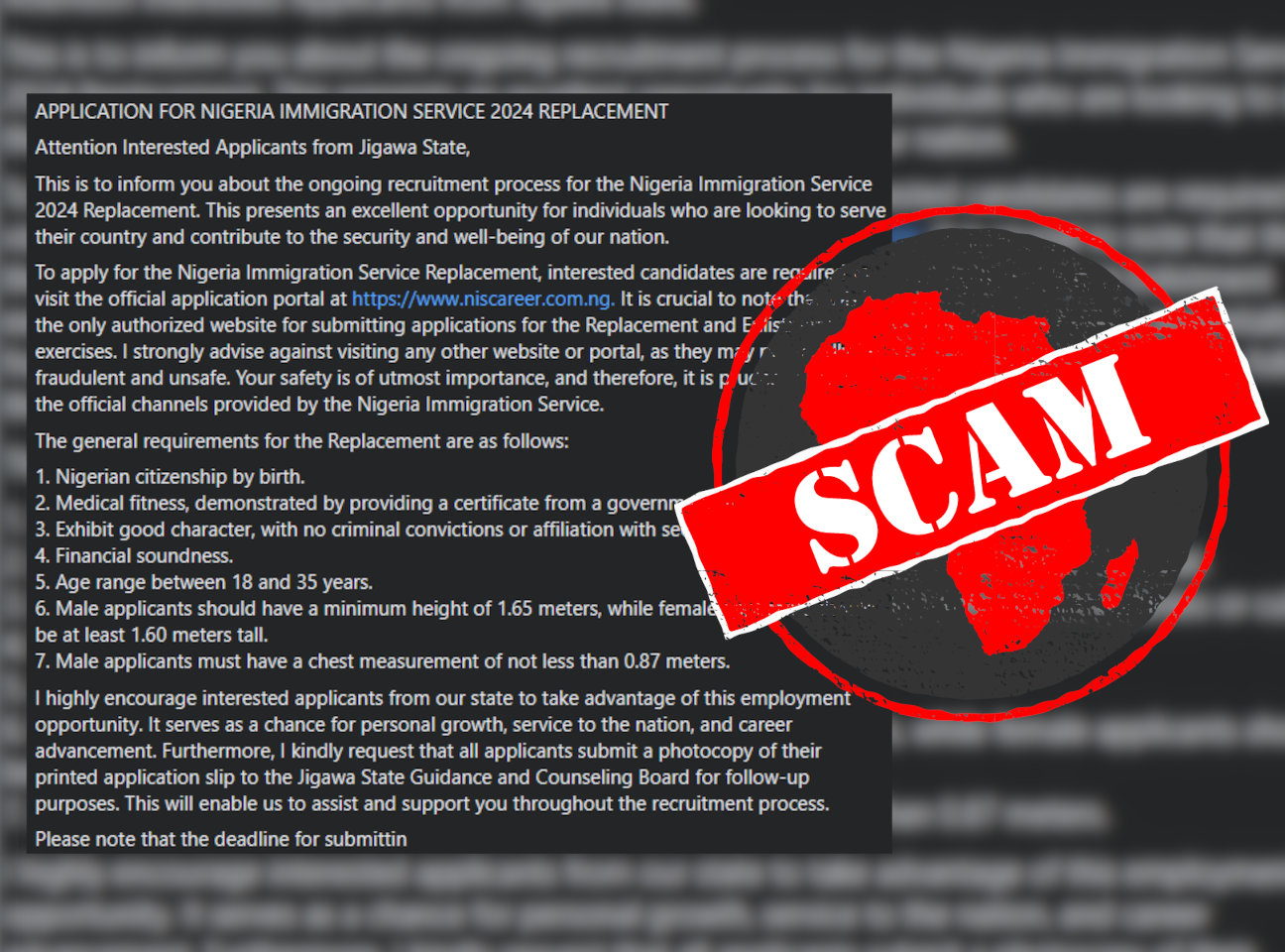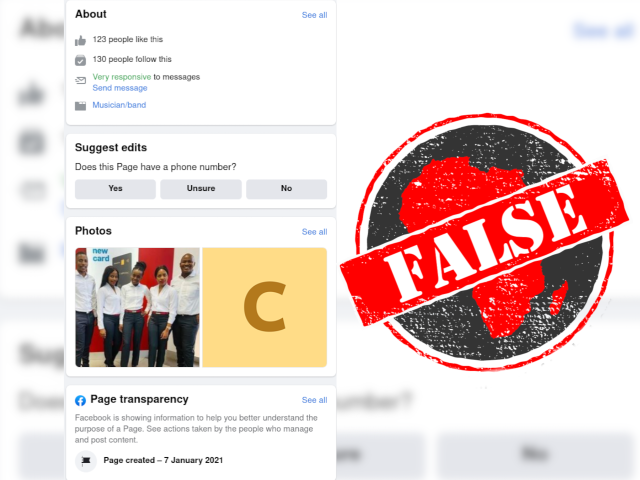IN SHORT: Several Facebook posts claim that Nigeria’s immigration agency is hiring. But the agency says this is not true and advises social media users to be cautious.
Several posts on Facebook claim that the Nigeria Immigration Service is recruiting.
One of the posts, dated 8 February 2024, reads: “This is to inform you about the ongoing recruitment process for the Nigeria Immigration Service 2024 Replacement. This presents an excellent opportunity for individuals who are looking to serve their country and contribute to the security and well-being of our nation.”
It also encourages users to “take advantage of this employment opportunity” via the link provided.
The Nigeria Immigration Service is a paramilitary government agency responsible for migration management and border security. It also issues all Nigerian travel documents, including passports.
Similar posts were found on Facebook here, here and here.
But is the agency hiring? We checked.

Signs of a Facebook job scam
The link led Africa Check to a suspicious-looking website with a pop-up message that said: “This is to notify the public that The Nigeria Immigration Service does not have any agent for the online application. Therefore, you are to Make the payment of ₦5,000 Application fee on this website … ”
The phone number and email address found on the site are different from those listed on the official Nigeria Immigration Service website.
The agency says it is not hiring. A pop-up message on its website reads: “Please be informed that The Nigeria Immigration Service is NOT currently recruiting. The general public is thus advised to disregard all malicious website(s) and online platforms claiming to be recruiting into the Nigeria Immigration Service.”
It also posted a statement on its official X account (the social media platform formerly known as Twitter), urging the public to steer clear of fake recruitment ads.
To help protect yourself, read our guide to Facebook scams and how to spot them.
Republish our content for free
For publishers: what to do if your post is rated false
A fact-checker has rated your Facebook or Instagram post as “false”, “altered”, “partly false” or “missing context”. This could have serious consequences. What do you do?
Click on our guide for the steps you should follow.
Publishers guideAfrica Check teams up with Facebook
Africa Check is a partner in Meta's third-party fact-checking programme to help stop the spread of false information on social media.
The content we rate as “false” will be downgraded on Facebook and Instagram. This means fewer people will see it.
You can also help identify false information on Facebook. This guide explains how.





Add new comment